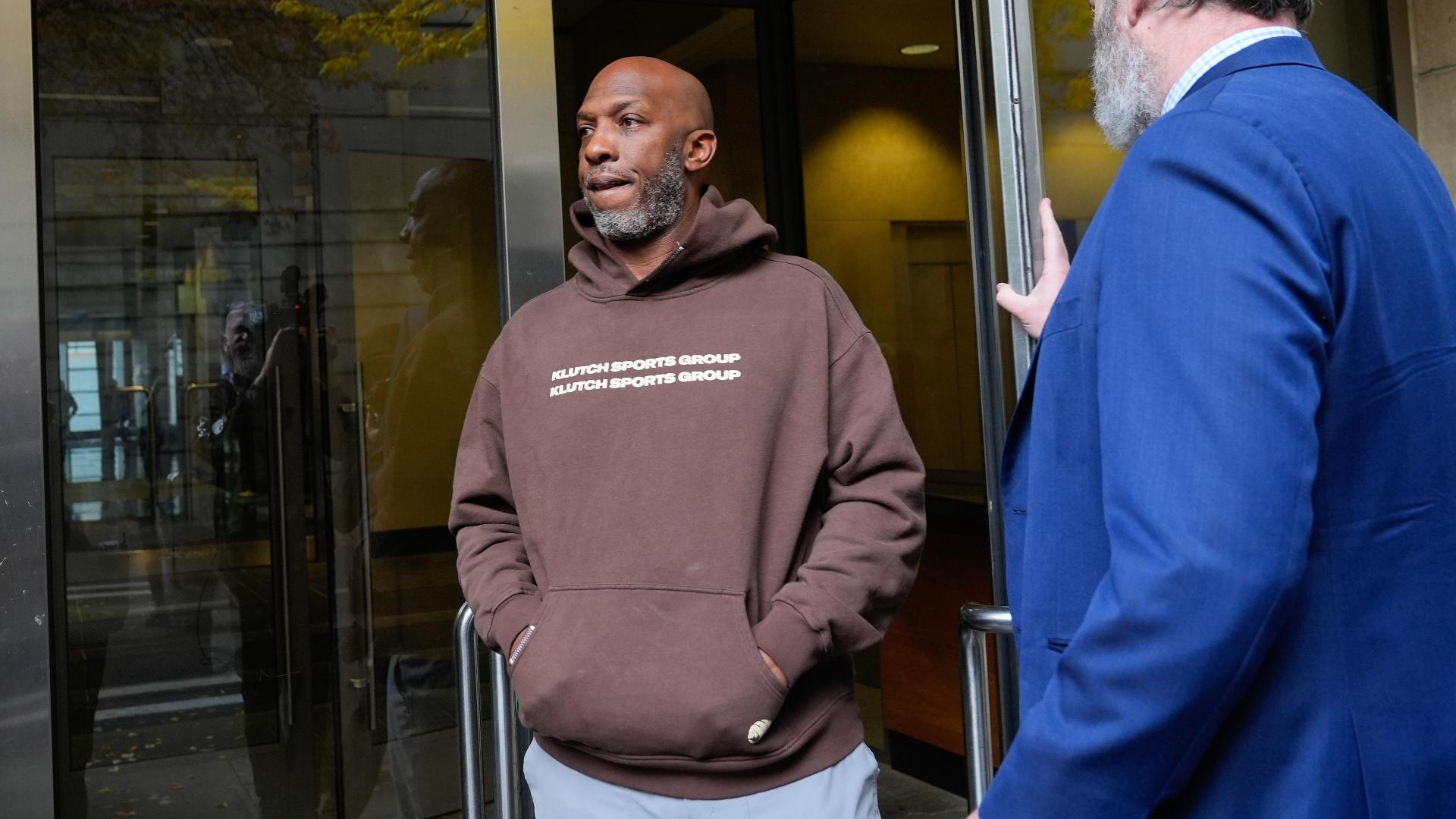Let’s get one thing straight from the jump. I do not give a single damn that ESPN is promoting betting. I do not care that podcasters are cashing checks from DraftKings. I do not care that content creators have FanDuel links in their bios. Never have. Never will. That is the business. They are not the ones playing. They are not the ones enforcing rules. They are not the ones investigating integrity.
Where I do have a major problem is with the actual leagues. The NBA. The NFL. MLB. The NHL. The big four. The people who run the show. The ones who are supposed to be the guardians of the sport. These are the ones who have turned around and partnered directly with the same sportsbooks that their players are banned from using. That is the definition of hypocrisy. And the worst part is they do not even try to hide it. They just cash the checks and pretend their integrity game is still airtight. Spoiler alert. It is not.
The Latest NBA Gambling Scandal Is Not The Real Story
Now let’s talk about what sparked all this conversation again. The latest NBA gambling mess involving Terry Rozier, Damon Jones, and Chauncey Billups. The details are still coming out, but the allegations include inside information, illegal bets, and all kinds of stuff the league swears it is protecting itself against. The FBI is involved. It is a real scandal. But as much as people are obsessing over who bet what and who knew what, the truth is this situation is not the actual root of the problem. It is a symptom. It is the leak that proves the water tank has been rusting for years.
The real issue is that the leagues sold their soul to the sportsbooks and now act shocked when little fires start popping up. If you do business with the fire, do not be surprised when you start smelling smoke.
The Moment The NBA Took The Money
Here is where the money comes in. The NBA officially jumped into the gambling profit pool in 2018 when they signed a deal with MGM Resorts worth about 25 million dollars according to reporting from ESPN. That was the day the league publicly dropped the whole we must keep gambling away to protect the purity of the sport routine. Before that day, betting was the shadow in the alley you never talked about. After that day, betting became a business partner.
Then more deals came. FanDuel. DraftKings. So many operators that the NBA came up with a category called Authorized Gaming Operators. That means they are paying the league for access to official NBA data, logos, branding, and the ability to create more accurate live odds than ever. That accuracy leads to more bets. Which leads to more revenue. Which leads to more leagues trying to squeeze every last penny out of every market.
The Revenue Is Too Big To Ignore
Numbers make this impossible to ignore. A study from the American Gaming Association projected that legal sports betting would generate 160 million dollars annually for the NBA directly from sponsorships, data rights, and other gambling related partnerships. The same study said engagement brought in another 425 million dollars. That totals around 585 million dollars from legalized betting alone. That is not chump change. That is a revenue stream the league will fight to protect even if protecting it means playing dumb about the dangers they created.
By 2023, the league’s overall sponsorship revenue hit around 1.4 billion dollars according to business reporting from outlets like TalkBasket. And a significant chunk of that explosion came from betting partnerships. That means that not only are these deals big, they are growing. They are now a cornerstone of league business. And the deeper they get the harder the league will cling to gambling partnerships even if the scandal list keeps growing.
The NBA Has A Financial Incentive For Gambling To Thrive
This all leads back to the one obvious truth the league hates admitting. The NBA now has a financial incentive for gambling to thrive. They make more money when betting becomes more popular. The more money that flows through FanDuel and DraftKings and BetMGM the more the NBA gets paid.
Meanwhile the players cannot touch any of it. They are the ones performing. They are the ones risking injury. They are the ones dealing with fan harassment when a rebound prop misses by one board. They are the ones who are told if they even place a harmless parlay on a different sport they risk their career. Yet the league office is out here throwing their logo on sportsbook banners like it is a family barbecue.
Players know this feels off. Surveys have shown that nearly half of NBA players believe gambling partnerships are a bad direction for the league. They see the double standard up close. They are held accountable for every little thing while the league that governs them is writing checks with the same companies that are influencing the way fans view the sport.
The League Created This Betting Culture
So when you see a scandal involving a player or a coach or even a trainer leaking information or placing illegal bets, ask yourself a simple question. Who created that environment. Who encouraged a culture where gambling is everywhere but only certain people are allowed to benefit from it. The league did.
And please do not get distracted by people screaming about ESPN having ESPN Bet graphics on the screen while reporting on the scandal. I get why people rolled their eyes. It looked ridiculous. It looked tone deaf. But here is the difference. ESPN is not the one enforcing the rules. ESPN is not the one handing out suspensions. ESPN is not the one whose product is being bet on. ESPN is a broadcaster selling ad space. If they want to push their sportsbook partnership that is business. That is capitalism. That is the same thing every other media outlet is doing.
The Hypocrisy Has Killed Trust
The leagues though. They should be above this. They are not supposed to profit from the same ecosystem they police. That is where the trust breaks. That is why fans eventually start believing the outcomes are influenced. That is why every officiating mistake now leads to conspiracy theories about spreads and props. Once the leagues took the sportsbook money they lost the ability to claim purity. They lost the right to act shocked when someone inside the walls treats gambling like a business opportunity.
Betting Has Now Infiltrated Every Minute Of The Game
Let’s talk about the slippery slope that already exists. Live prop bets are now available on almost everything. Player assists. Player turnovers. Even bench players have markets on certain sites. That means every minute on a court has money attached to it. Every substitution can move an odds number. Imagine being a young player fighting for minutes while knowing a group of degenerates are betting the under on your points because your coach does not trust you. That is pressure nobody asked for but now exists because the league greenlit the business model.
The Fix Is Extremely Simple
If the NBA wants to truly protect integrity they need to cut ties with official gambling partnerships entirely. They can let sportsbooks operate. They can allow fans to bet. But they cannot continue to profit directly from bets while telling players they cannot participate. That is not integrity. That is selective morality powered by profit.
Yes the league will cry about revenue loss if they step away from these deals. They will say the money is too big to walk away from. They will say fans are more engaged than ever because of betting. That is all probably true. But here is the one question they are terrified to answer. What happens when fans no longer believe the games are real.
Once that trust is gone it never comes back. Ask boxing. Ask the steroid era in baseball. Ask anyone who has seen a sport lose credibility. You can make billions today and destroy the sport forever tomorrow. The NBA is playing with that fire right now.
Fans See The Double Standard Clearly
Fans are not dumb. They see how quick the league is to suspend someone like Jontay Porter for gambling violations. They see how the NFL went nuclear on Calvin Ridley. They see players held to impossible standards while their employers are signing sponsorship deals with the very companies putting those players under a microscope.
The message is clear. We get the money. You get the rules.
Betting Is Not The Villain Here
So here is the bottom line. I am not attacking the act of gambling. I enjoy betting. Fans enjoy betting. Betting makes sports more fun sometimes. And if ESPN wants to push their sportsbook to the moon they should. If content creators want to cash checks for sign up codes they should. Get your bag.
But the leagues cannot morally enforce the law of the land while cashing in on the same thing they call dangerous. They cannot pretend they are the protectors of integrity while making hundreds of millions from the sportsbook boom. They cannot preach ethics while eating from the same plate they tell players not to touch.
Pick A Side Or Fans Will
This latest scandal is not a shock. It is an inevitable result of a system built on hypocrisy. And until the leagues admit their role in creating this mess and completely separate themselves from sportsbook money we are only going to see more of these headlines. More FBI involvement. More conspiracies. More distrust from fans.
The way forward is simple. The leagues need to choose. Are they governing a sport or are they marketing a gambling product. Because right now they are trying to do both. And until they pick a side the entire foundation of competitive sports is going to keep cracking.
The day the leagues became business partners with the bookies was the day integrity stopped being the priority. It became a slogan. A sales pitch. A hollow talking point.
If they want to protect the game like they say they do then it is time to cut off the money pipeline from sportsbooks. Integrity cannot be the rule if profit is the priority. Pick one. And if they do not pick soon the fans will make that decision for them by walking away.
Because nobody will keep believing in a sport when the people who run it no longer do.



Leave a Reply